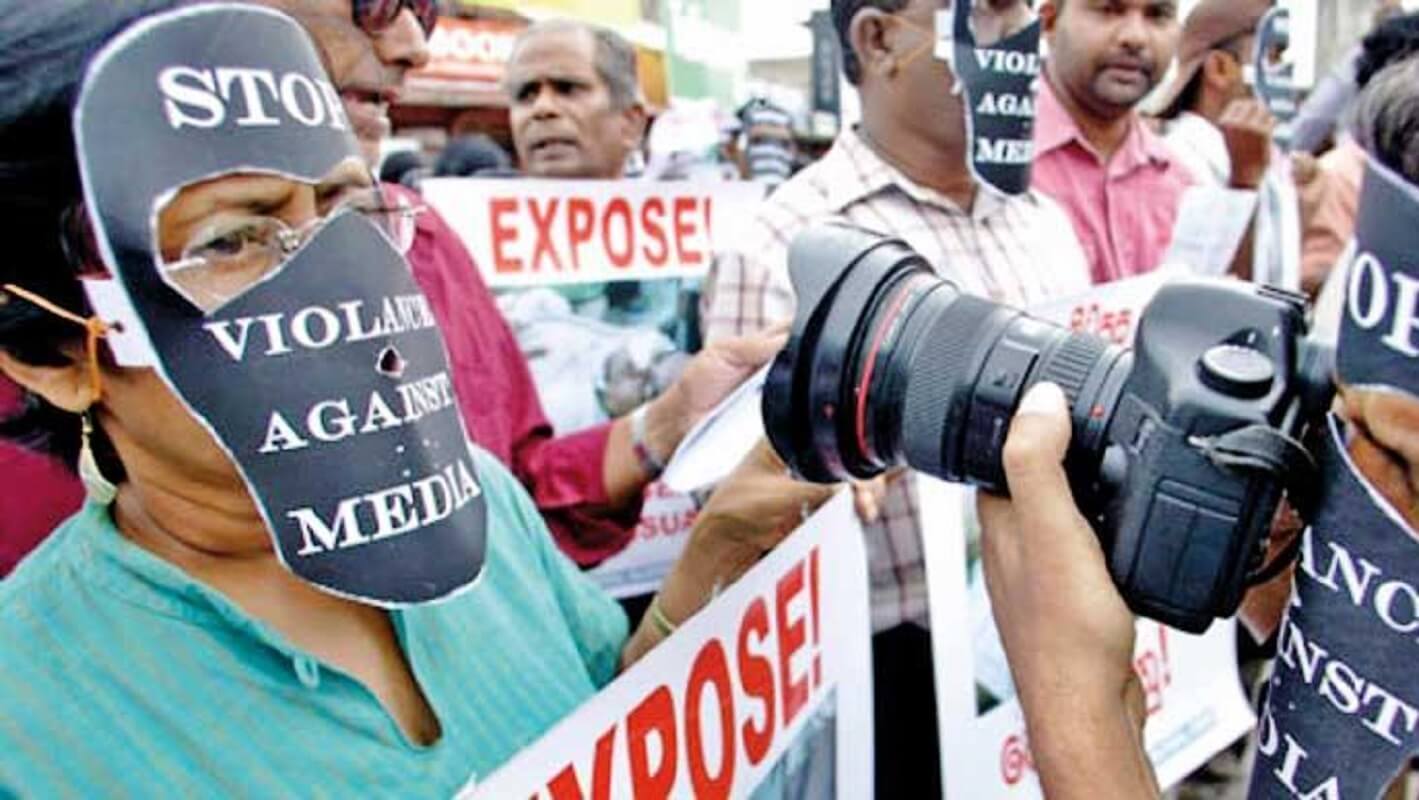What Now for The Media?
Amantha Perera | 10 August 2022
The iconic GotaGoGama is winding down. The crowds have thinned out. The WhatsApp messages that used to flood the inbox have dried out. The foreign journalists who were so much of a concerned feature of the Aragalaya coverage have left. The short-term fixing gigs have slowed down. You wake up and suddenly the overlay of working intensity has dialled down a bit but the uncertainty of what lies next as a citizen of Sri Lanka has not.
"Despite years of training and skills development programmes, half-a-dozen national and international journalism training organisations based in the country, the media community at times displayed debilitating mistakes in reporting the protests"
Since the protests started in late March and gained momentum, Sri Lankan journalists have found the interlock between life and work inseparable. Some of them were so caught up in the work intensity and the attention from all over the world that not only did they neglect their own safety, they also forget some very basic tenants of journalism.
By the time Ranil Wickremesinghe replaced Gotabaya Rajapaksa as the head of state, a few who started off reporting the protests as closely and diligently as they could, ended up being part and parcel of the protesters. This was especially true of social media profile. As I said in a previous column, this may be a positive bias, but it still is a bias and a naked one at that.
This has counterweighed a similar bias displayed by some very senior journalists towards those who held power. All of this is the latest reflection of the deeply politicised nature of the media in Sri Lanka.
It also lays bare the lack of skills and aptitudes within the journalism community. Despite years of training and skills development programmes, half-a-dozen national and international journalism training organisations based in the country, the media community at times displayed debilitating mistakes in reporting the protests.
The lack of skills was also partly responsible for their inability to understand and prepare for the show of public anger and frustration directed at them.
"The Aragalya showed how much the information echo system has changed. But it also re-emphasised the role of professional journalism, journalism that can sift through the chaff, the innuendo and the lies and keep the truth at the centre of the coverage"
The Aragalaya should be as much a catalyst for the Sri Lankan media community to take stock of its lot as it has been for national politics. The industry, when I say, industry, I mean the commercial holdings and the government media organisations are in a royal mess. There is no independence instead there are short-and long-term agendas within which coverage is herded. There is no sense of public benefit or lack of it unless determined by these agendas.
The Aragalya showed how much the information echo system has changed. But it also re-emphasised the role of professional journalism, journalism that can sift through the chaff, the innuendo and the lies and keep the truth at the centre of the coverage. Doing just that may prove extremely uncomfortable for the practitioners, amplified by the noise of social media.
There is also the massive lack of space to do this. International outlets do not cut it here because unless there is a war, a tsunami or an Aragalaya, their attention is but a blip. There is huge need for a hybrid media outlet, funded and effectively linked to training and skills development programmes that can function as a public service media platform.
"By the time Ranil Wickremesinghe replaced Gotabaya Rajapaksa as the head of state, a few who started off reporting the protests as closely and diligently as they could, ended up being part and parcel of the protesters. This was especially true of social media profile"
This however has to happen soon and has to happen from scratch. The existing journalism training set-ups both long term and shorter versions are extremely outdated models, more like tuition centres than anything else.
This is by no means an easy task. It also not a task for the current crop of journalism experts unless they undergo a radical mindset change. That should not mean that we import the lot that also will not work. It requires a hybrid of talent, planning and implementation, a clear reflection of the times that require such an intervention.
The writer is a journalism researcher and a writer.
This article was originally published on Daily Mirror, Sli Lanka.
Views in this article are author’s own and do not necessarily reflect CGS policy.
